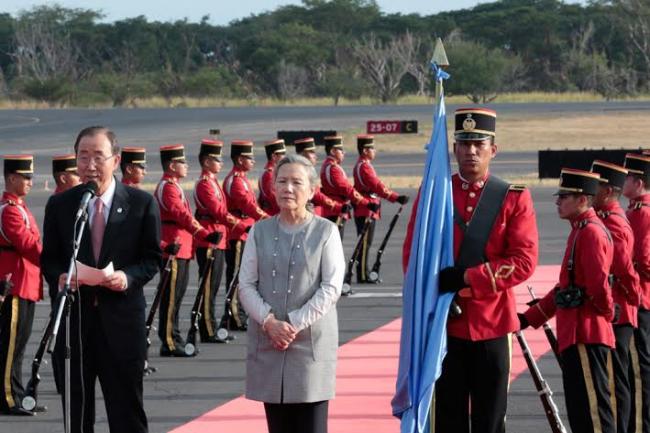25 Mar 2015

“The best way to honour Monsignor Romero’s legacy of fighting for human rights and human dignity is by taking concrete action to fulfil the right to truth and other fundamental human rights in our time,” Ban said in a message marking the International Day for the Right to the Truth concerning Gross Human Rights Violations and for the Dignity of Victims.
The Day, observed on 24 March, was proclaimed by the UN General Assembly five years ago to honour in particular the Roman Catholic priest’s work and values as a human rights defender.
“Earlier this year, I had the honour of paying my respects at the gravesite of Monsignor Óscar Arnulfo Romero, who was murdered in El Salvador on this day in 1980,” Ban said.
He added, “Monsignor Romero was an icon for human rights and social justice.”
After witnessing numerous violations of human rights, Monsignor Romero began to speak out on behalf of the poor and the victims of repression.
On 24 March 1980, an assassin fired from the door of the chapel where Romero, then Archbishop of San Salvador, was celebrating mass and shot him dead.
“The right to the truth – which is both an individual and collective right – is essential for victims but also for society at large,” Ban said.
He said, “Uncovering the truth of human rights violations of the past can help prevent human rights abuses in the future.”
“That is why,” he said, “the United Nations supports fact-finding missions, commissions of inquiry, and truth commissions to uncover the truth about gross violations of human rights and serious violations of international humanitarian law.”
The UN works to promote justice, propose reparations, and recommend reforms of abusive institutions.
In addition to the numerous commissions of inquiry supported by the UN, the world body is also providing advice and assistance to a number of transitional justice processes, including in Cote d’Ivoire and Tunisia, the Secretary-General noted.
“I once again call for the full implementation of recommendations of commissions of inquiry and truth commissions,” he said.
He went on to say, “On this vital day, let us together pledge to help victims, their families and societies realize their right to truth and protect all who strive to see the truth prevail.”
Photo: UN Photo/Evan Schneider